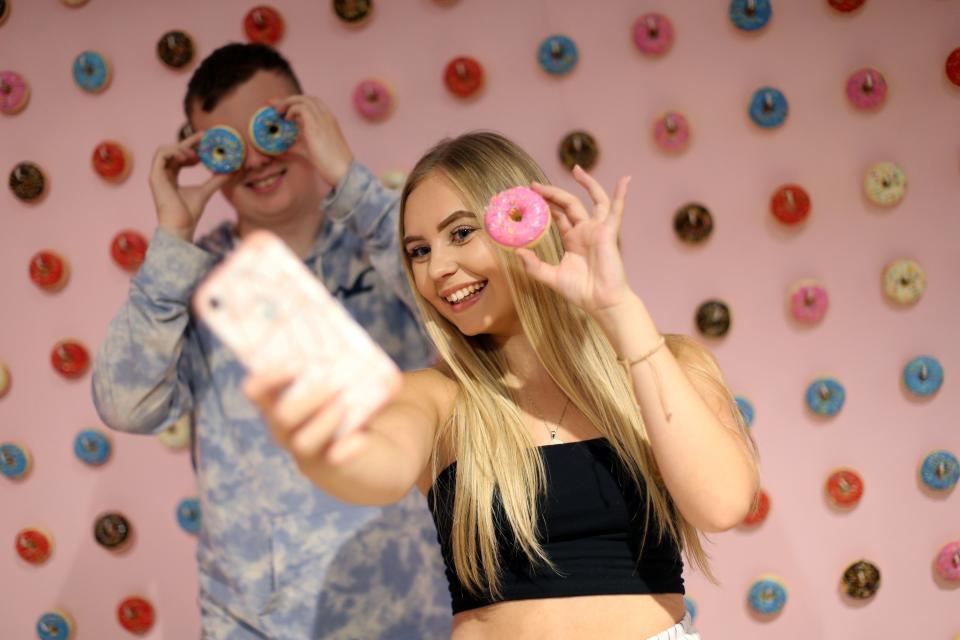Why we always compare ourselves to others in our field – even though we know we shouldn't

It’s a situation lots of us have found ourselves in. You’re scrolling through social media, past all the usual pictures of pets, banana bread and friends on countryside walks. And then, you spot a post by a friend who has landed a great new job at a well-known company.
They’ve worked hard and they deserve their success. And more importantly, you’re happy in your job so it doesn’t make any sense to feel jealous. So why has their achievement made you question every career choice you’ve ever made?
We all compare ourselves to others in our social worlds, whether it is comparing our looks to those of celebrities, or our talents to those of our colleagues. In psychology, social comparison theory is one explanation for this tendency - and why it’s such a difficult habit to kick.
“There’s a theory of social psychology called Social Comparison Theory that asserts that humans have an innate need to gain accurate self-evaluations,” explains organisational psychologist and career coach Alison Wilde, who runs the career consultancy organisation for women Birdsoup. “So we will always try to measure ourselves against others both upwards and downwards.”
READ MORE: How to reignite your ambition after 2020
When we compare ‘upwards’, we assess ourselves against those who we believe are better than us. This is often to try to improve ourselves. But when we compare ourselves downwards, we are judging ourselves against others who are worse off than use, often to make ourselves feel better.
Social comparison theory was first proposed in 1954 by psychologist Leon Festinger, who suggested that people have an innate drive to evaluate themselves. One of the key ways we do this is to analyse ourselves in relation to others, particularly when we’re uncertain about our opinions or abilities. According to some scholars, social comparison is an evolutionary trait we’ve inherited from our cave-dwelling ancestors, when we had to size up our competitors.
The social comparison process involves us getting to know ourselves better by assessing our abilities, traits and skills against those of other people. Usually, we try to compare ourselves to our peers, those who are similar to us - which may explain why we tend to look at colleagues or friends.
Watch: How To Resign Without Burning Bridges
Ultimately, how social comparison makes us feel depends on the situation. Sometimes, it can be a positive thing that leads to inspiration, for example, if we see someone we admire achieve success. “However, this isn’t the case for everyone and in every situation,” Wilde adds. “Comparison with others at work can often lead to opposite feelings. The problem with comparison is that by doing this we are looking for things that are the same or different.
“If, for example, you look at a colleague who is considered a good leader, then you may be tempted to compare your style with theirs and you will no doubt discover several differences,” Wilde says.
“If you feel you can’t do things the same way as them then you could see the differences between your style and theirs as 'bad'. You may feel dissatisfied initially and then begin to believe that you are failing.”
READ MORE: How to cope with a colleague who turns everything into an emergency
Constantly comparing yourself to others can also have a serious impact on our mental health. Focusing on our failures and seeking perfection can lead us to be overly critical of ourselves, giving rise to intense pressure that can take its toll on our wellbeing. A study by researchers at the University of Western Ontario in 2017 even suggested the pressure to be perfect is a contributing factor to people prone to suicide ideation and attempts.
Unfortunately, social comparison is a difficult habit to kick because it’s something we’ve been encouraged to do since childhood. In school, at college and university, we compared ourselves against our peers to evaluate our abilities and accomplishments, as well as our looks, popularity and other factors.
The rise of social media hasn’t helped either. We spend huge amounts of time on Instagram, Facebook(FB) and Twitter (TWTR), which give us a glimpse of other people’s carefully curated lives. We only see the good bits, often without any context.
To curb the negative effects of social comparison, it can help to make a list of who or what triggers you. Keep a note of what makes you feel worse about yourself and resolve to catch yourself next time.
If you’re finding it hard to stop comparing yourself to others, it’s worth taking a break from social media or limiting how often you check it. It’s also important to try to think rationally when you see a colleague who has been promoted or a friend who has a new job. What’s right for them may not be right for you - and you never know what the downsides may be, or what they may have sacrificed to get there.

 Yahoo Finance
Yahoo Finance 